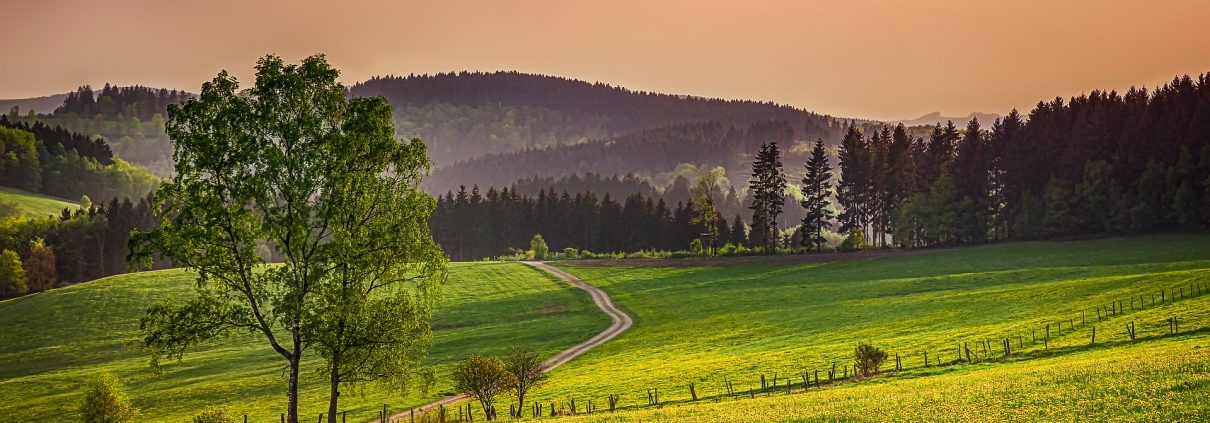Buying Land For Building A Home Versus Buying A House
Whether you’re considering buying an existing home or purchasing a tract of land on which to build a new home, both options require considerable research. Both options also have some important differences you should be aware of so that you can make an informed decision.
The Major Difference Between Buying Land For Building A Home and Buying a House
One of the differences between the two is how the loans are structured. Mortgages come in a range of options to suit your needs and budget, but there are much fewer options for purchasing land. Many land loans must be fully paid within three to five years.
Interest rates and down payments are also usually higher on land loans than on mortgages. A typical down payment can range from 20-50%. However, some banks will allow a lower down payment if you have an excellent credit score. Securing a lower interest rate is a lot tougher, though, as land only loans are riskier for the lender since there really isn’t any collateral, such as a home. Therefore, lenders are less inclined to offer lower interest rates.
One of the benefits of purchasing land with cash is that the amount you pay for the land can be used as a down payment towards your construction loan when you’re ready to start building your home. Lenders can also include your land purchase within your construction loan in some cases.
Most experts recommend purchasing the land with cash, if you have it. A land specialist can advise you on your options, and a financial advisor can assist you in liquidating assets or arranging finance options.
Reasons to Consider Buying Land
In many areas, today’s housing market is a rather competitive one. New homes are being snatched up before they’re even finished being built. Older homes can come with older home problems. If the current housing market just isn’t offering what you need, then purchasing land and having your own home built according to your specifications may be a much more viable option.
Buying rural land also affords you more freedom and less intrusion from nearby neighbors and costly HOAs. If you like the idea of being able to do more of what you want on your land without neighborhood covenants and restrictions, then once again, buying your own private land is probably a good choice for you.
Important Considerations When Buying Land
You’ll need to figure out if your budget allows a purchase of land and building a home. Aside from construction costs, you’ll also have to consider additional costs including, but not limited to, permits, fees, land adjustments – if needed, and the cost of running water, sewer, and utility lines to the home. The guidance of a land professional is vital to this process.
How to Find Land to Buy For Building A Home
When seeking land to purchase, you’ll want to retain the services of a qualified rural land agent as opposed to a residential real estate agent. A real estate agent without the education or experience handling land transactions can end up either wasting your time, costing you a lot of money, or both. Start searching for a qualified agent near you or browse properties listed by qualified agents to get started. Be sure to interview the agents that you’re considering to confirm they’ve got the experience necessary to help you reach your goals.
The Importance of Using a Qualified Land Agent When Buying Land
A qualified land agent will have the knowledge and experience to help you maximize the value of your land transaction. Land agents will be able to provide you with important information, resources, and a network of land experts that a traditional real estate agent likely would not have access to in their role. Additionally, they’ll save you a lot of money because they’re well aware of the costs, paperwork, and legalities of a land purchase. Some of the other important ways a qualified land agent can help you include:
- They’ll have information on zoning laws detailing what can and can’t be done on the land you wish to purchase.
- They’ll have information on city ordinances you would have to adhere to.
- They can help you hire a professional land surveyor should you need one.
- They can help you estimate the utility costs for running water and electric to your new home.
- They will have information on easements.
- They can tell you if the lot you intend to purchase falls within a floodplain.
- They can help you with permits before the construction of your home.
Below is a checklist with some suggestions for potential land buyers to be educated about when looking to purchase land for the first time. Please keep in mind this list is not exhaustive, and anyone considering to purchase land to build a home on should work with a specialized land consultant in their area before buying land.
Checklist For Land Buyers
- Zoning & Permits
- Special Tax Assessments
- Easements & Deed Restrictions
- Property Boundaries
- Water Rights & Soil Productivity
- Future Land Use Planning
- Crop & Timber Yields
- Well water quality and flow
- Road & Driveway Maintenance
- Fire & Ambulance Services
- Electricity and High Speed Internet Options
- Flood Zones
- Past & Present Land Use
- Adjacent properties’ land uses
- Past Logging Practices
- Surveys
- Topography & Geo hazards
- Property Taxes & Associated Deferrals
- Hardship & Farm Help Dwellings
- Financing Options for Rural Property
- Market Valuations & Inspections
- Sale Negotiations
Remember, as with any major purchase, it’s also important to do your own due diligence and use a qualified land agent, like an Accredited Land Consultant, to assist with your purchase. Ask plenty of questions, consider the value of nearby homes, and plan your budget accordingly so that you will have a better idea whether purchasing land is the right option for you. Rural Property is a segment of Real Estate that requires a different level of education and experience from the professionals that advise buyers and sellers.

















